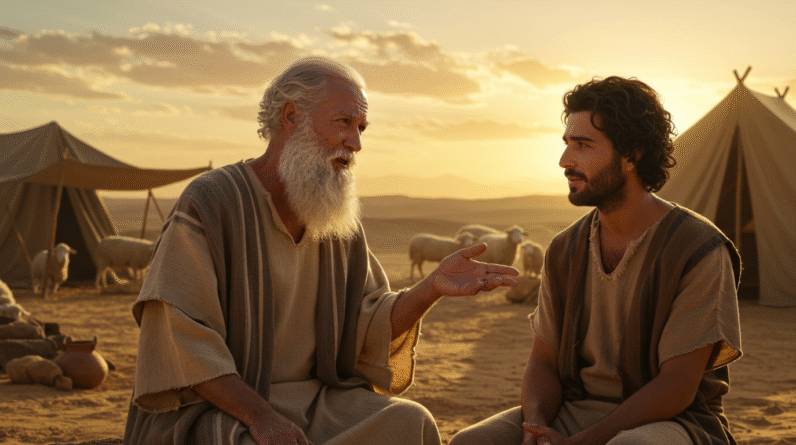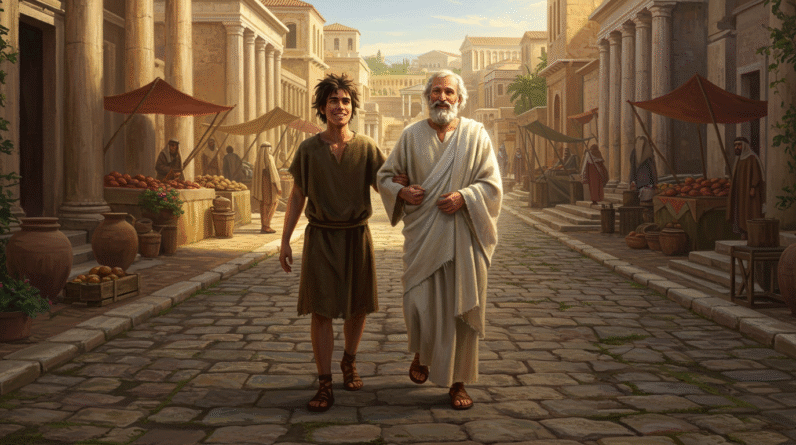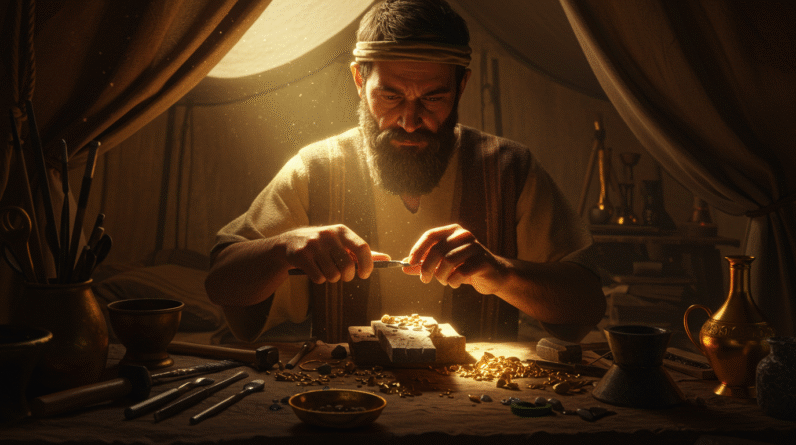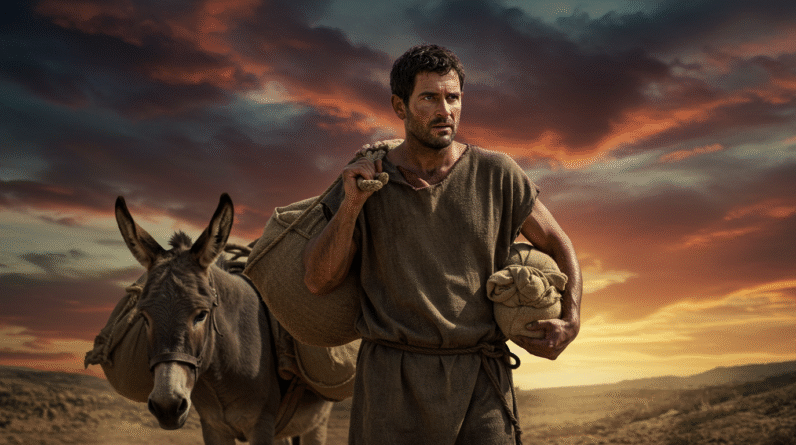Unraveling The Role Of Jezebel’s Eunuchs In The Bible’s Dramatic Narrative

Have you ever found yourself noticing a small detail in a story that suddenly changes everything? You read a single line, and an overlooked character or a short action shines a new light on the whole scene. That’s exactly what happens when you slow down and look at the role of Jezebel’s eunuchs in the biblical narrative. You might skim past them as background players, but those few figures sit at a crossroads of power, loyalty, and divine justice—and they help the story teach you something about influence, complicity, and the consequences of choices.
Introduction
Have you ever glanced at a minor character in a movie and realized their action was the hinge that turned the plot? The Bible does that too—sometimes those small, almost invisible details change everything. Jezebel’s eunuchs are exactly that kind of detail. They show up briefly, carry out an extreme command, and their action becomes a key turning point in God’s unfolding story of kings, prophecy, and justice.
Why should you care? Their story raises hard questions about obedience, complicity, courage, and the moral cost of following orders. And when you bring those questions into your life—your workplace, family, church—you start to see how God reshapes hearts and systems through small, decisive moments.
📖 The Bible Foundation
Read the scene. Here’s the passage that introduces the eunuchs and the moment of judgment:
“Two or three eunuchs looked out at him. ‘Throw her down!’ he said. So they threw her down, and some of her blood spattered the wall and the horses, and he trampled her underfoot.”

This short, brutal action occurs in a larger passage (2 Kings 9:30–37) where Jehu confronts Jezebel in Samaria. The eunuchs are attendants—court officials—who carry out Jehu’s command to remove Jezebel from the window and throw her down. On the surface, it’s a simple physical act. But the scene is loaded with symbolic weight: Jezebel’s death marks the fall of idolatrous influence in Israel’s monarchy and fulfills prophetic judgment.
If an eighth-grader asked you what’s happening here, you could say: Jezebel was a powerful queen known for promoting false gods and opposing God’s messengers. When Jehu comes to take power, she taunts him from the palace window. Jehu orders her removed; the attendants—called eunuchs—do as he says, and her death signals the end of her corrupt rule.
🧠 Understanding the Core Truth
At its core, this scene teaches you about how power gets exercised and how ordinary actors can participate in extraordinary moral outcomes. The eunuchs are literal servants, but they have a moral role: they can choose compliance or resistance. Their compliance leads to a violent, public judgment that’s tied to prophetic fulfillment (prophets had earlier pronounced doom on Jezebel).
You need to notice two things:
- Small actors matter. A brief obedience by servants advances a divine plan and changes history.
- Moral agency exists even within hierarchical structures. The eunuchs weren’t the ones who initiated the decree, yet their choice to obey (or to refuse) carried consequences.
Seen through God’s perspective, this passage shows that justice can come through unexpected channels, and that human choices—especially in moments of power—are spiritually significant.
🌊 Going Deeper — The Hidden Meaning

Beneath the surface, the episode invites you to wrestle with complicity and conscience. Jezebel represents entrenched idolatry and opposition to God’s prophets. Jehu’s violently decisive action fulfills the judgment prophesied by Elijah and others. The eunuchs, while not the singular villains or heroes, become instruments of that judgment.
Think about this relatable modern example: you’re part of a team where a leader makes a harmful decision—perhaps covering up wrongdoing or mistreating someone. You face a choice: follow orders quietly, resist openly, or find a way to mitigate harm. The eunuchs’ action is like choosing to follow the harmful command; their obedience makes the leaders’ decision effective. That doesn’t mean they bear all the blame, but it does mean their moral responsibility matters.
Also consider the symbolism: throwing Jezebel down from the window is a reversal of her positional power (high in the palace) to a state of humiliation and death. The eunuchs’ role emphasizes how instruments of power—those closest to authority—can either uphold injustice or help bring about accountability.
💡 Modern Connection — Relevance Today

This ancient snapshot speaks directly into modern life. You’ll find “eunuchs” in contemporary forms: aides, assistants, corporate lieutenants, staff members, even social media managers. Anyone who has the proximity to power and can act on orders has an ethical call.
Here are a few ways the lesson applies:
- In workplaces where unethical practices are normalized, the people who carry out the details help shape what becomes “business as usual.” Your small decisions—reporting, resisting, or participating—matter.
- In churches or organizations, silence in the face of harm enables patterns to persist. You can choose to be a bystander or someone who steps into accountability with courage and wisdom.
- In families, repeated small acts of enabling can protect a harmful pattern. Recognizing your role can lead you to change the pattern.
The story invites you to consider how your obedience aligns with God’s justice and the good of others. It’s less about legalism and more about moral clarity: whom do your actions ultimately serve?
❤️ Practical Application — Living the Message
How do you live this lesson out? Here are doable, faith-centered steps you can take right away:
- Pause before complying. When asked to do something that feels wrong or harmful, take a breath and ask: Will this protect truth, dignity, and God-honoring justice?
- Seek counsel. Don’t carry the burden alone. Talk with trusted believers, elders, or mentors who can help you discern wise action.
- Offer alternatives. If a directive harms others, propose a different path that honors integrity and compassion.
- Pray for courage and discernment. Ask God to give you both the wisdom to see the right move and the courage to take it—even if it’s risky.
- Act when necessary. Speak calmly but firmly on behalf of those who can’t speak for themselves.
These steps aren’t about playing hero. They’re about stewarding your role in a world where small decisions cumulatively shape culture and conscience.
👉 🌿 Faith Reflection Box
Take a moment now: Who are the “eunuchs” in your life—people whose choices help carry out a pattern, for better or worse? How would your daily behavior look different if you saw your role as spiritually significant?
Key Takeaways
- Your small actions have significant moral weight; you’re never merely background.
- Obedience to authority must be filtered through loyalty to God and justice.
- Courageous, small acts of resistance can stop harmful patterns and align you with God’s heart for justice.
👉 8. Q&A
Q1: Did the eunuchs have a choice, and are they morally responsible for Jezebel’s death? Answer: Yes, they had agency, and choices carry moral weight. The biblical narrative shows them as attendants who “looked out” and then carried out Jehu’s command. They were not the originators of the decree, but they acted on it. Scripture often treats those who execute orders as morally accountable—especially when the task causes harm. You can see a parallel in how Scripture calls for righteous action even under authority (Romans 13:1 speaks of submission to governing authorities, while Acts 5:29 records, “We must obey God rather than human beings.”). That balance means you’re called to weigh obedience against God’s justice. Acts 5:29 (NIV) Romans 13:1 (NIV)
Related: The Manipulative Reign of Queen Jezebel: Lessons from Her Downfall
Q2: Is Jehu’s violent action endorsed by God, and what does that mean for Christians today? Answer: The narrative presents Jehu as an instrument used to execute prophetic judgment against Jezebel and Ahab’s house—prophecies earlier declared by Elijah (see 1 Kings 21 and 2 Kings 9). However, Scripture also records Jehu’s shortcomings and the consequences of violent zeal without full devotion to God (2 Kings 10:31). For you today, that means caution: God may use imperfect people to carry out judgment, but that doesn’t sanitize all their methods or motives. You should be wary of celebrating violence or taking justice into your own hands; instead, pursue justice with humility, prayer, and obedience to God’s means. 2 Kings 9:7 (NIV) 2 Kings 10:31 (NIV)
Q3: How does the symbolic use of “Jezebel” in Revelation shape how we read the historical account? Answer: Revelation 2:20 uses “Jezebel” as a symbolic label for false teaching and immorality within the church—drawing on the historical Jezebel’s identity as someone who promoted idolatry and seduction away from God. The prophetic use shows how biblical characters become archetypes: Jezebel becomes shorthand for a dangerous, seductive influence that leads people away from truth. When you read the historical account, you should note both literal facts and the theological symbolism: God judges falsehood and seduction of the heart, and your spiritual vigilance matters. Revelation 2:20 (NIV) 1 Kings 21 (NIV) — Jezebel’s story context
See also: The Legacy of Jezebel: Manipulation and Idolatry Explored
🙏 Conclusion & Reflection
You’ve seen how brief moments and minor players in Scripture can reveal big spiritual truths. Jezebel’s eunuchs show you that proximity to power is morally consequential—your small acts matter. When you’re faced with orders or pressures that tug at your conscience, remember that faithfulness often looks like small, steady courage: pausing, seeking counsel, praying, and then choosing what honors God.
Let’s close with a short prayer: Lord, give me wisdom to discern when obedience protects what’s right and courage to refuse what harms others. Help me see my ordinary choices as opportunities to reflect Your justice and mercy. Amen.

More Inspiration Awaits — Read These Next
👉 For deeper insight into Isaiah 40:31 and how it renews your strength in both faith and daily life
👉 For practical lessons on compassion and neighborliness from the Good Samaritan
👉 For a clear explanation of what we can learn from the Parable of the Good Samaritan
👉 For meaningful insights from the Parable of the Pearl and its hidden treasures
👉 For a deeper look at the Rich Man and Lazarus and what it reveals about the afterlife
👉 For guidance on the Parable of the Ten Virgins and preparing for God’s Kingdom
👉 For clarity on the Parable of the Lamp and how it calls us to shine our light
👉 For insights from the Parable of the Wedding Feast and the meaning behind the invited guests

📘 Jesus and the Woman Caught in Adultery – Grace and Mercy Over Judgement
A powerful retelling of John 8:1-11. This book brings to life the depth of forgiveness, mercy, and God’s unwavering love.
👉 Check it now on Amazon 🛒💥
🔥 “Every great message deserves a home online.” 🌍💬🏡
Don’t let your calling stay hidden. Start a Christian blog or website using Hostinger — with 99.9% uptime, a free domain, and SSL, your voice can shine for God’s glory anytime, anywhere.
💥 Begin today. 🛒 Try it RISK-FREE! ✅
✝️ “Your body is God’s temple — care for it with purpose.” 💪💖🏛️
Renew your energy and restore balance naturally. Mitolyn helps support a healthy metabolism, giving you the vitality to live out God’s calling with strength and confidence.
🔥 Unlock Your Metabolic Power! ⚡Burn More Calories & Feel Great With Mitolyn. 💪
👉 Start Today. 🚀 Check Price Now. 🛒💰
💰 As a ClickBank & Amazon Affiliate, I earn from qualifying purchases.
📖 Acknowledgment: All Bible verses referenced in this article were accessed via Bible Gateway (or Bible Hub).
🚀 Want to explore more? 👉 Dive into our new post on Why Jesus? and experience the 🔥 life-changing truth of the Gospel!








